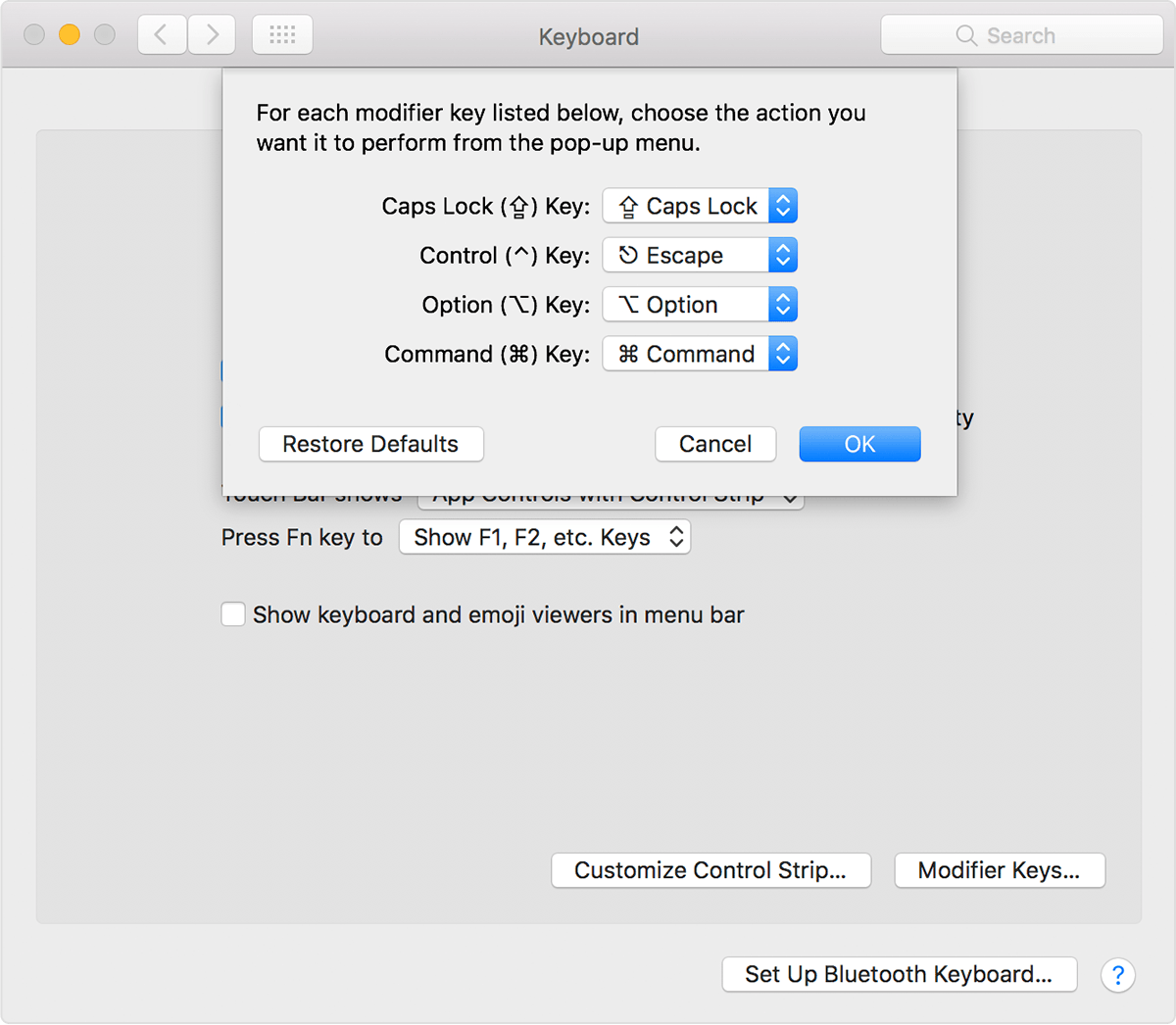El Escubo's Key Quest Mac OS
Dragons, witches, trolls... No one can stop Anna. With her telekinesis, unorthodox use of torture instruments, a knack for improvisation and the help of a shady fox she just makes her way. She communes with the dead, shuts off the local taverns beer supply and gets old ladies behind bars...
The world of author Dane Krams' debut on the game development stage isn't as cuddly as it may seem. Anna however, is actually perfectly nice - or is she? It all starts with freeing talking teddy bear...
Anna's Quest unfolds a hand-drawn, grim tale with a good dash of self-irony.
If your host's (your computer) architecture matches the guest's (QEMU) architecture and is running Mac OS 10.10 or higher, then you could speed up execution to near native speed using this option: -accel hvf Installing QEMU using a package manager. Tigerbrew: brew install qemu HomeBrew: brew install qemu MacPorts: sudo port install qemu Fink. Enable Driver Feed to automate driver updates Install driver packages to the appliance Disable Driver Feed Create folders to add device-specific drivers Generate KACE SDA package to import large driver files Import driver packages to the appliance Understanding KACE Boot Environment drivers Add network and storage drivers manually Re-cache the network and storage driver directory Add drivers.
Features

- Unlimited inventory with special slot for a baby dragon
- Small-time Vandalism
- Discover a Unicorn's inner beauty
- Black magic and telekinesis - this time, not exclusive to villains!
- Executions for the whole family!
- Light-hearted, courageous, bad-ass: Anna
- Classic Point & Click controls with hotspot-indicator
- Awesome ending (really!)
- 1Notes
Some system emulations on Linux use KVM, a special emulation mode which claims to reach nearly native speed.KVM is mainly used for x86 (32 and 64 bit) emulation on x86 hosts running Linux. Should you want to run Qemu with KVM support on a G5, depending on your distribution, you might have to compile your own kernel with KVM support.
If your host's (your computer) architecture matches the guest's (QEMU) architecture and is running Mac OS 10.10 or higher, then you could speed up execution to near native speed using this option: -accel hvf
Installing QEMU using a package manager
Building QEMU for macOS
The system requirements are:
- One of the two most recent versions of macOS (currently Catalina or Big Sur)
- The clang compiler shipped with the version of Xcode for that OS X. GCC might also work, but we recommend clang
Additional build requirements are:
make (when installed through brew, make is installed as gmake, so use gmake)
After downloading the QEMU source code, double-click it to expand it.
Then configure and make QEMU. The target-list option is used to build only the machine or machines you want. If you don't specify it, all machines would be built. Probably not what you want.
This way doesn't require you to wait for the configure command to complete:
If your system has the 'say' command, you can use it to tell you when QEMU is done
You can use './configure --help' to see a full list of options.
Here are all the currently available machines:
- aarch64-softmmu
- alpha-softmmu
- arm-softmmu
- cris-softmmu
- i386-softmmu
- lm32-softmmu
- m68k-softmmu
- microblaze-softmmu
- microblazeel-softmmu
- mips-softmmu
- mips64-softmmu
- mips64el-softmmu
- mipsel-softmmu
- moxie-softmmu
- or32-softmmu
- ppc-softmmu
- ppc64-softmmu
- ppcemb-softmmu
- s390x-softmmu
- sh4-softmmu
- sh4eb-softmmu
- sparc-softmmu
- sparc64-softmmu
- tricore-softmmu
- unicore32-softmmu
- x86_64-softmmu
- xtensa-softmmu
- xtensaeb-softmmu
We recommend building QEMU with the -default compiler provided by Apple, for your version of Mac OS X (which will be 'clang'). The configure script will automatically pick this.
Errors on old compilers
Note: If after the configure step you see a message like this:
you may have to install your own version of gcc. You can build it from source (expect that to take several hours) or obtain third party binaries of gcc available from Homebrew or MacPorts.
You can have several versions of GCC on your system. To specify a certain version, use the --cc and --cxx options.
Build with LLVM/Clang 7
If you need to compile with newer versions of clang (to get f.i. AVX/AVX2 support), you can install llvm through e.g., brew.
Note that building for machines with CPUs supporting such extensions will exclude running your binary on earlier machines.
Compile with:
Contacts
El Escubo's Key Quest Mac Os Download
If there are any issues with this web page, please let me know.